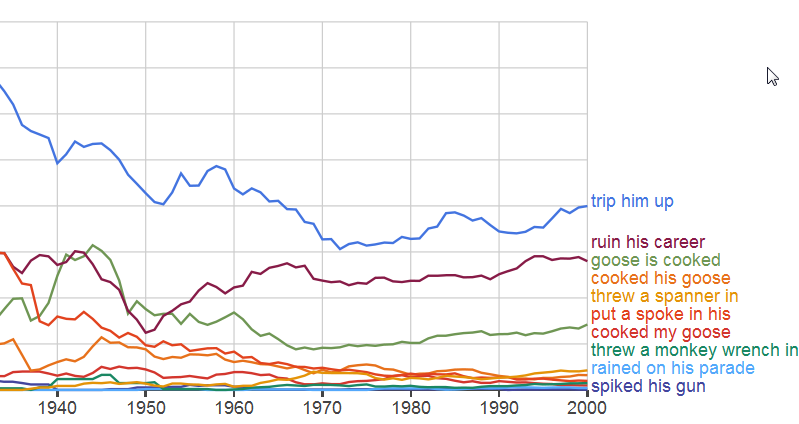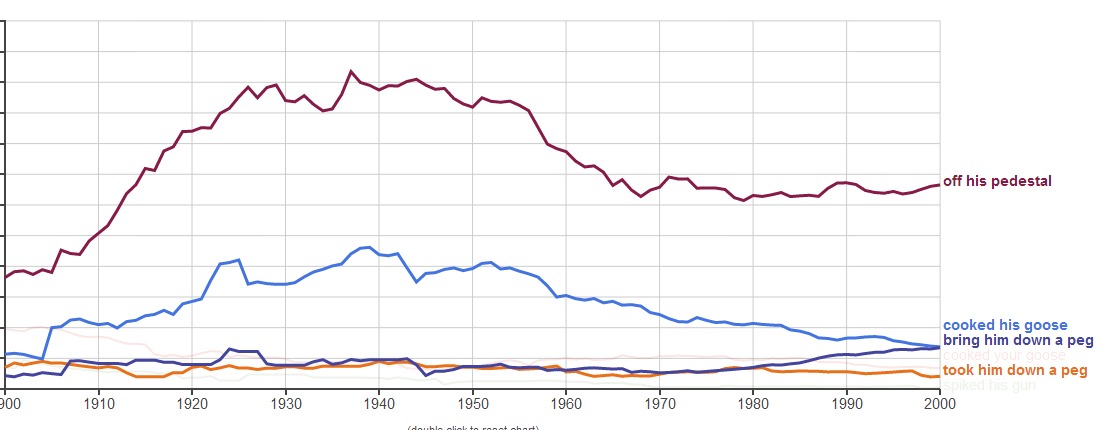When I said “Don’t pull my legs,” in English as a literal translation of Japanese idiom, “足を引っ張る-ashi o hipparu - pull one’s leg” meaning “trip a person up with a mistake” to my English enthusiast friend who pointed out my misspoken words in English Speaking Society, she retorted me that “Pull one’s leg” in English has totally different meaning from Japanese “pull one’s leg.” It means to play a joke on a person.”
I consulted a digital English Japanese dictionary on the spot. She was right.
“足を引っ張る- pull one’s leg” is very popular Japanese idiom that is used when somebody is nitpicking your error or misstatement. And I think it came from an analogy of pulling somebody down who’s trying to climb up the ladder of success by his / her legs.
Are there English idioms or figurative expressions equivalent to Japanese “Ashi o hipparu –pull somebody down by his / her legs from the ladder of success / achieving goal, by exposing or making most of his / her mistakes / fault / shortcomings?


